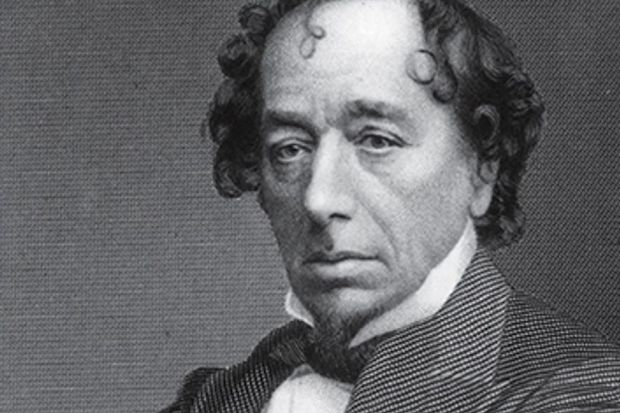Benjamin Disraeli was both a novelist and a novel choice as the leader of a political party, especially the mid-19th-century Conservative Party. That he was the author of a number of sensational works of fiction made him an unusual member of the party of the aristocratic and landed interest. He was also somewhat handicapped by being a near bankrupt with a suspect financial record. That he had conducted love affairs with married women added to his somewhat raffish reputation. He was also Jewish by birth and, to some contemporaries, this was his most important and most damning characteristic. That he nevertheless succeeded in becoming leader of the Conservative Party in the Commons and then prime minister was, as the late David Cesarani comments, “a tribute to his exceptional abilities and the openness of English politics and society”.
Just how Jewish Disraeli was, or how Jewish he felt, are questions that have preoccupied his many biographers, and they are central to Cesarani’s study. Disraeli was a Jew by descent but not by religion, for he was baptised a Christian at 13 and his attitude towards his Jewishness was always ambivalent. He came from a line of Sephardic Jews, a cosmopolitan and wealthy group whose members often mixed in gentle society and took a pragmatic view of matters of religion.
His Jewish background caused him few problems in his early career, certainly fewer than the self-made problems of his debts, his manner and style, and his changing political loyalties. As Cesarani demonstrates, he took little interest in Jewish causes for most of his time in politics, and it was only during his 1874-80 premiership that his Jewish background became a major political issue. There had always been those, mainly Liberals and radicals, who, without evidence, had seen him as a promoter of Jewish interests, and Disraeli was attacked for seeming to align British foreign policy to Jewish aims and Rothschild money.
It is in his novels, rather than in his career, that historians have found most evidence for his views on the Jews, and Cesarani analyses them in depth. He argues that Disraeli’s Jewish characters provided tropes and stereotypes that future anti-Semites could use, and that his concept of the Jews as an aristocratic and superior race fed conspiracy theories. Yet, especially in his best-known novels, Sybil and Coningsby, the sections on the Jews are interpolations rather than central themes and it is difficult to know how seriously his readers took them. His later novels Lothair and Endymion contain much more about Judaism and the Jewish race, and Cesarani sees this growing emphasis on the Jewish role in history as the result of Disraeli’s perennial problem, his debts: he hoped to please the Rothschilds and had hopes of a legacy from a wealthy widow of Jewish birth. Yet, arguably, the central theme of the novels is Disraeli’s extravagant personal myth transmogrified into a theory of history.
This is a fascinating, if narrow, study of Disraeli. But the biographer clearly did not like his subject, who was both insufficiently Jewish and too Tory for his taste, and Cesarani underestimates him. The outsider and chameleon who, by charm, wit, ability and a degree of duplicity, secured the highest office was no late “court Jew”, and, rather than fanning anti-Semitism, one of his great contributions to British political life was to marginalise it.
A. W. Purdue is visiting professor in history, Northumbria University.
Disraeli: The Novel Politician
By David Cesarani
Yale University Press, 304pp, £16.99
ISBN 9780300137514
Published 27 April 2016
POSTSCRIPT:
Print headline: A minister with many portfolios
Register to continue
Why register?
- Registration is free and only takes a moment
- Once registered, you can read 3 articles a month
- Sign up for our newsletter
Subscribe
Or subscribe for unlimited access to:
- Unlimited access to news, views, insights & reviews
- Digital editions
- Digital access to THE’s university and college rankings analysis
Already registered or a current subscriber?




